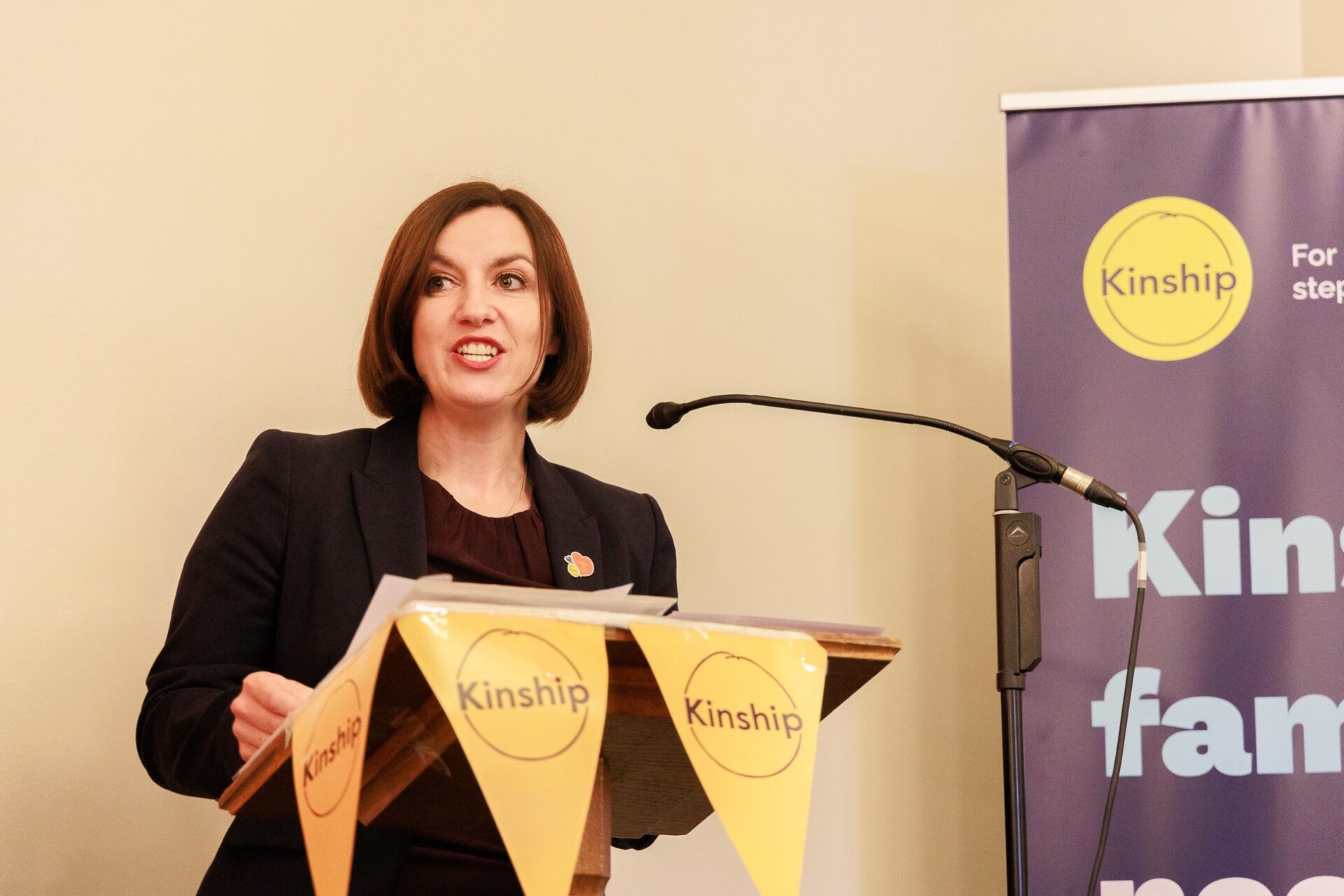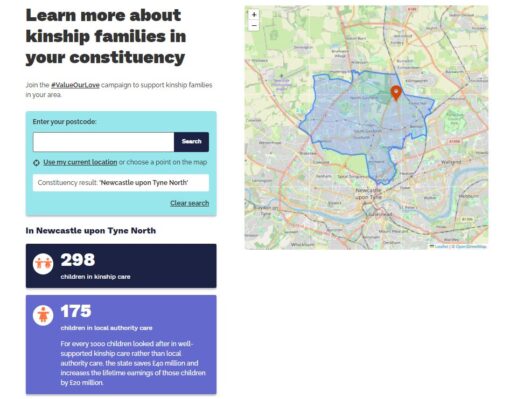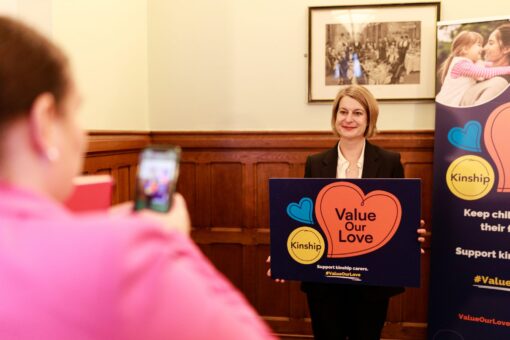
Our new research reveals how poor employment support is pushing kinship carers out of the labour market unnecessarily – and keeping them there.
Kinship works collaboratively with kinship families, researchers, professionals, decision makers and other partners to influence national and local policy making across England and Wales. Our unique reach allows us to listen to the views and expertise of thousands of kinship carers each year, and we campaign alongside them to deliver the changes they want to see most for their families.

Our surveys of kinship carers are the largest of their kind, and alongside the insights from our advice and support work, enable us to make a compelling argument for policy and practice change. View our most recent reports below or take a look at all of our research and reports.

Our new research reveals how poor employment support is pushing kinship carers out of the labour market unnecessarily – and keeping them there.

Valuing Kinship Care in England, published jointly by Kinship and The Centre for Care, highlights how kinship carers contribute £4.3 billion to the economy by caring for children who need a safe and loving home.

Make or Break shares key findings from Kinship’s 2024 annual survey of more than 1,300 kinship carers to provide an updated ‘state of the nation’ overview of kinship families.
Keep up to date with what’s happening now, our verdict, and what we think should happen next across kinship care policy in England.
Visit the tracker
Learn more about the number of kinship children and the prevalence of kinship care in your local area, and the key challenges facing kinship carers in your region.
View the map
Find out how you can support kinship families in Parliament and your constituency, and learn more about the #ValueOurLove campaign and what we want to see from the UK Government.
View the pack
We regularly share timely briefings ahead of parliamentary debates and other key events, and work alongside kinship carers to respond effectively to consultations which share our evidence and insight.
Meet Joy, a kinship carer, and learn more about her experience of being a kinship carer.
More than 141,000 children are in kinship care in England and Wales
Only 54% of children in kinship care are getting the support they need in education
More than 1 in 8 kinship carers were concerned they might have to stop caring for their kinship children
We campaign to make the lives of kinship families better, but we can’t do it without you. Join us as we campaign together for all kinship carers and the children they love.
Join one of our networks to stay up to date with our policy work in England and Wales.
Our professionals' network is for social workers, academics and other professionals with an interest in kinship care.
Join our Professionals NetworkJoin our Researchers’ Network to stay updated with the latest research into kinship care and meet others working in this area.
Join our Researchers’ Network